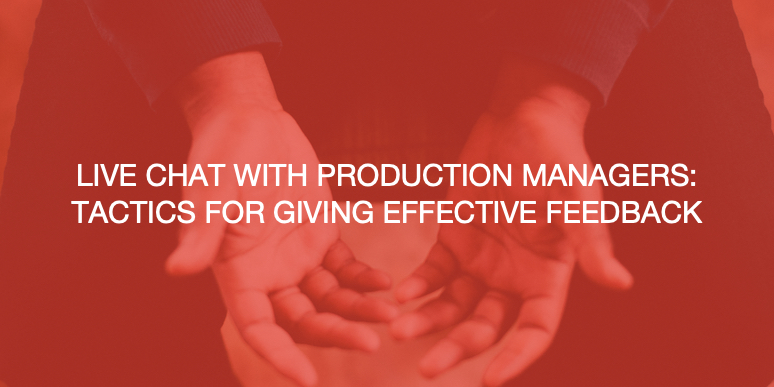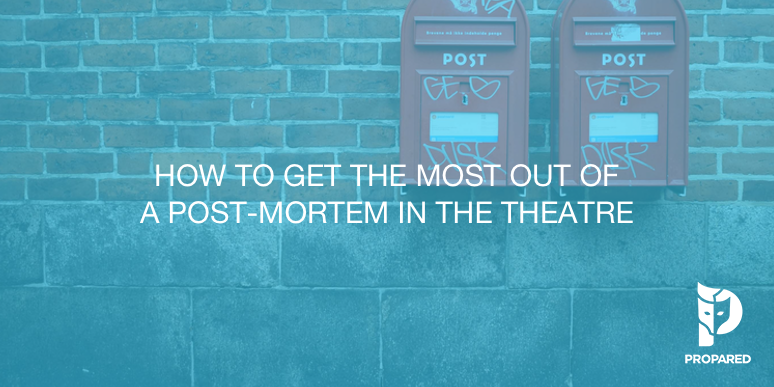
For all of the creative energy needed to produce an event, there’s a major part of the job that is decidedly unsexy. I’m talking of course about logistics. The nitty gritty, down-to-the-minute planning that answers the question, “How are we going to make this thing happen?”
The term itself comes from the Greek “logistikē,” meaning the art of calculating and the French “logsitique,” which characterized the movement and supplying of troops and equipment (Merriam-Webster, 2016). In current usage, logistics refers the detailed coordination of a complex activity, usually involving many people. Sound familiar? Great event managers know that unless they spend a lot of time coordinating event logistics, they’re asking for trouble.
Thankfully, such attention to detail is a skill that can be learned and perfected. Chances are, you’re already doing it. Here are a few tips to help you continue to master the more headache-inducing part of your job.
1. Start Big, Go Small
Most events have the big markers in place long before the details get sorted. Opening night, the week of the conference, etc. Use them! You can only work with what you have. More and more details will emerge as you address the concrete tasks in front of you. Before you know it, you’ll have plenty on your hands.
2. Define the Event Goal
You’ve probably done this with your client somewhere in your proposal or early planning meetings. If not, do it here. If you aren’t sure of the goal, how do you know what you need to do to reach it?
3. Set Communication Methods
How will your team be passing information back and forth? Email? Cloud-based management platform (shameless plug)? Carrier pigeon? Event logistics doesn’t just mean what you need to produce the event from the client-facing side. It should cover the “back of house” as well.
Using event apps, new systems, or even onboarding new event planners to your existing workflow takes time. Time to research, plan, and gather resources. That’s all logistics.
4. Identify and describe Tasks
Each piece of an event is part of a puzzle. It’s your job to figure out how it all fits together. Using your big markers, start listing the tasks that need to be accomplished.
Do those tasks have smaller tasks that need to be done first? List them as well. No task is too big or small to identify and track. Creating a visual map or decision tree for yourself can help. It will clearly show how each task is connected to another. To that end…

5. Build a Task Order
If you’ve identified your tasks using some sort of hierarchical structure, this will be easy. If not, spend some time figuring out which tasks are parents and which are children. What needs to be done first so you can move on to other things? Getting this right is crucial. Picture this.
- In order to file for permits the light plot, an electrical layout must be completed.
- But in order to complete the layout, the ground plan must be completed.
- In order to complete the ground plan, the size and location of the stage must be determined.
- In order to determine the size of the stage we need the rider from the band.
- In order to get the rider we have to book the talent.
And so on it goes. Imagine how much time would be lost if you incorrectly ordered these things. Remember, time is money and you don’t have much to spare.
6. Identify People Responsible for Each Task
Delegation powers: activate! Now that you’ve got a pretty robust set of tasks to do, put them in the hands of your team members. If you’ve gotten really specific in your task identification, you’ll have determined what resources your team needs and procured them.
7. Set Timetables
Event production doesn’t have the luxury of pushing many deadlines. The event is coming, ready or not. Before you pass off tasks, make sure your team knows when they need to be finished.
And make sure they understand how certain tasks are linked so they can plan their departments accordingly. Tie your logistics to the overall event schedule. If there are going to be delays with a particular piece, EVERYONE affected by the delay will be able to quickly see it and adjust.
8. Trust in Others
Thankfully, the event or production manager doesn’t need to know answers to all of these questions prior to beginning work. In fact, you might not even be the best person to answer certain questions.
The last and most important thing is knowing who to hire. Who will be a good partner for this event, for your A/V needs, catering, transportation, etc. A good rule? Find people smarter than you and make sure they have what they need.
Managing event logistics is not just about details. It’s about how you keep track of those details. You keep asking questions until no stone is left unturned. It’s a fluid process and it will change as more information comes in. The best you can do is document, anticipate, and communicate. Maybe it’s not such a bad idea to treat your event as a battlefield. Make sure your troops have what they need to win.
Event managers, how do you tackle logistics for your events? What tools do you use? Share them with us in the comments below.



